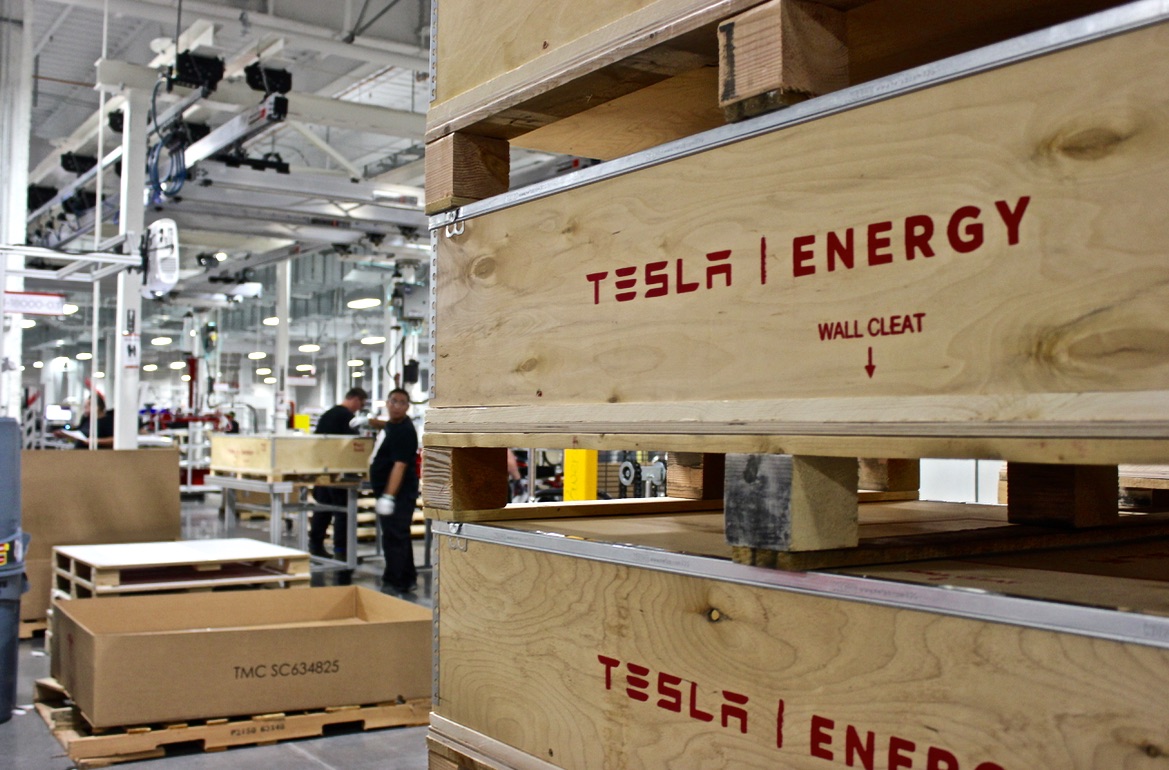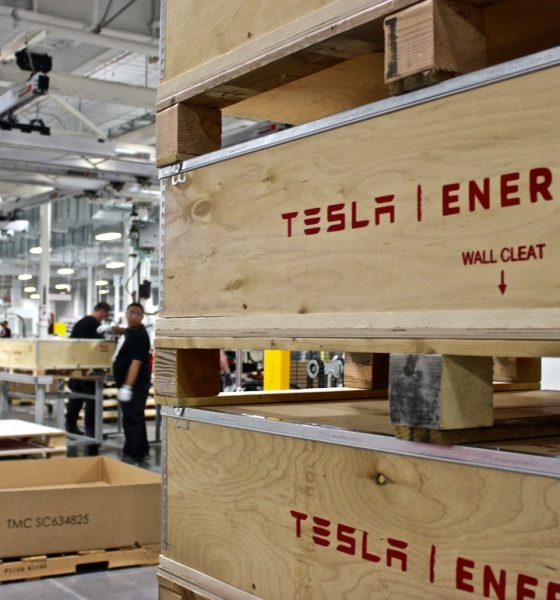Tesla’s potential as a future battery supplier for other automakers is being paved by the ongoing struggles of the company’s rivals today. This idea is becoming more and more feasible as more and more veteran automakers experience battery-related challenges in their respective electric car programs.
Building electric cars is no easy task. As evidenced by the issues plaguing the rollout of the mass-market Volkswagen ID.3, making good electric vehicles is not just a matter of stuffing an electric motor and batteries in an existing platform for an internal combustion car. Making EVs, especially good, high-performing ones like the Tesla Model 3, requires mastery of a different set of skills, such as software management and battery optimizations.
The latter is where a vast divide exists between Tesla and legacy automakers today. Tesla utilizes its own proprietary battery tech for its vehicles. The 2170 cells for its Model 3 sedan are even being produced at Giga Nevada, a massive factory that is poised to become one of the largest in the world by footprint once it’s completed. Veteran automakers, on the other hand, rely on suppliers such as LG Chem to supply their EVs’ batteries.
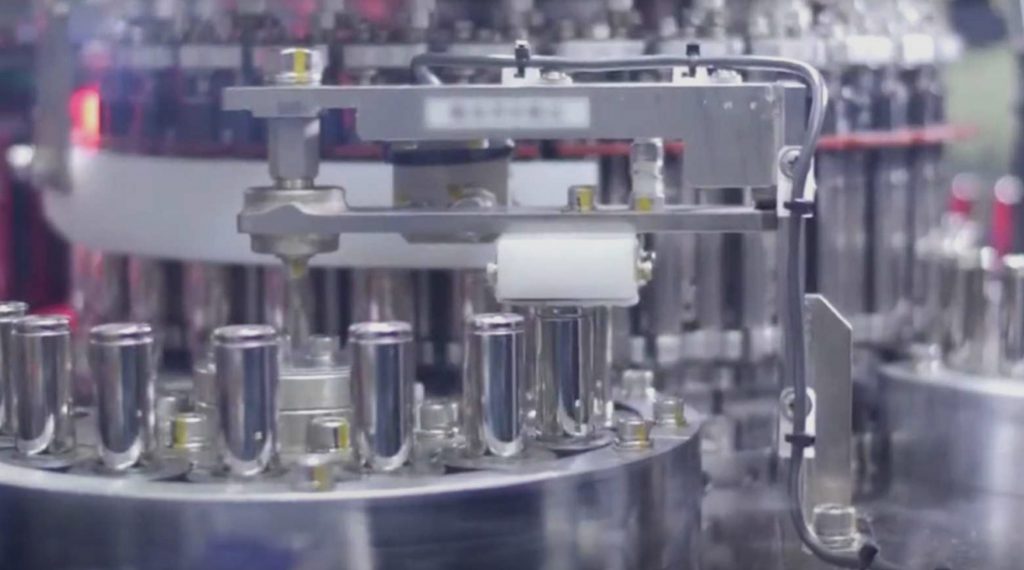
LG Chem supplies cells to several automakers, including Audi and Jaguar, whose e-tron and I-PACE both utilize the company’s batteries. Rivian, which uses 2170 cells for the R1T pickup and the R1S SUV, source their cells from the South Korean firm as well. More recently, even startup Lucid Motors, which is reportedly on the cusp of releasing its first vehicle, the Air, also announced that it would be sourcing cells from LG Chem. This is great for LG Chem, as it validates the quality and capabilities of its batteries, but it also does not bode well for all the companies looking to acquire adequate battery supply for their electric cars.
As it is, LG Chem appears to be having difficulties meeting the demand for its vehicles already. Shortages of cells from the battery manufacturer have reportedly become the cause for the recent halts in the Audi e-tron and the Jaguar I-PACE’s production. And this is just with premium-priced, mid-volume SUVs. When high-volume vehicles enter the market, such as the Volkswagen ID.3 (which also gets some of its cells from LG Chem), the South Korean firm will likely find it even more challenging to supply batteries to all its clients.
This supply issue could become a serious challenge to the electric car revolution. With this in mind, and with even more electric cars coming in the next few years, a need for another battery supplier emerges. This is where Tesla comes in. Tesla has been expanding its business to not just focus on building electric cars, as evidenced by the company’s energy and battery storage initiatives. Considering Tesla’s experience in building EVs, as well as the industry-leading quality of its batteries, the company may very well be poised to become one of the leading suppliers of cells for other electric car makers.
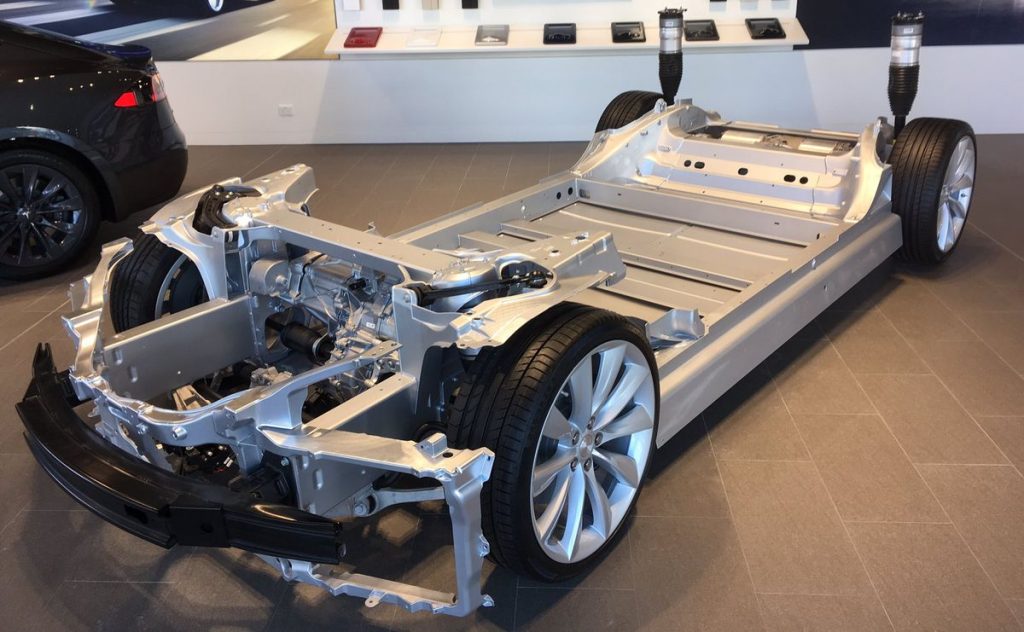
Interestingly enough, CEO Elon Musk has mentioned the possibility of Tesla serving as a supplier of batteries and powertrains to other automakers in the past. This was explained by Musk himself during the Q3 2019 earnings call. “It would be consistent with the mission of Tesla to help other car companies with electric vehicles on the battery and powertrain front, possibly on other fronts. So it’s something we’re open to. We’re definitely open to supplying batteries and powertrains and perhaps other things to other car companies,” he said.
Fiat-Chrysler CEO Steve Manley also suggested the idea during a Q&A session. Speaking about the company’s electric vehicle strategy, Manley mentioned that Fiat-Chrysler would likely be purchasing key electric car components from the Silicon Valley-based company. “It would be wrong of me to say no,” Manley said, adding that batteries and drivetrains will likely be among the parts that FCA will be purchasing from Tesla. The CEO also expressed the possibility of FCA acquiring a “skateboard” platform from Tesla, which it would use for its own vehicles.
Tesla is at a point where its lead in the electric car space is undeniable. The company is also at a point where its manufacturing systems are more refined than before. Tesla may thus be reaching a stage where it is large and robust enough to support other automakers that are also adopting electric cars. As veteran carmakers transition into EVs, those who can secure battery supply from Tesla will likely be the ones that will survive what could very well be a painful and costly move towards sustainability.

Elon Musk
Tesla Full Self-Driving set to get an awesome new feature, Elon Musk says
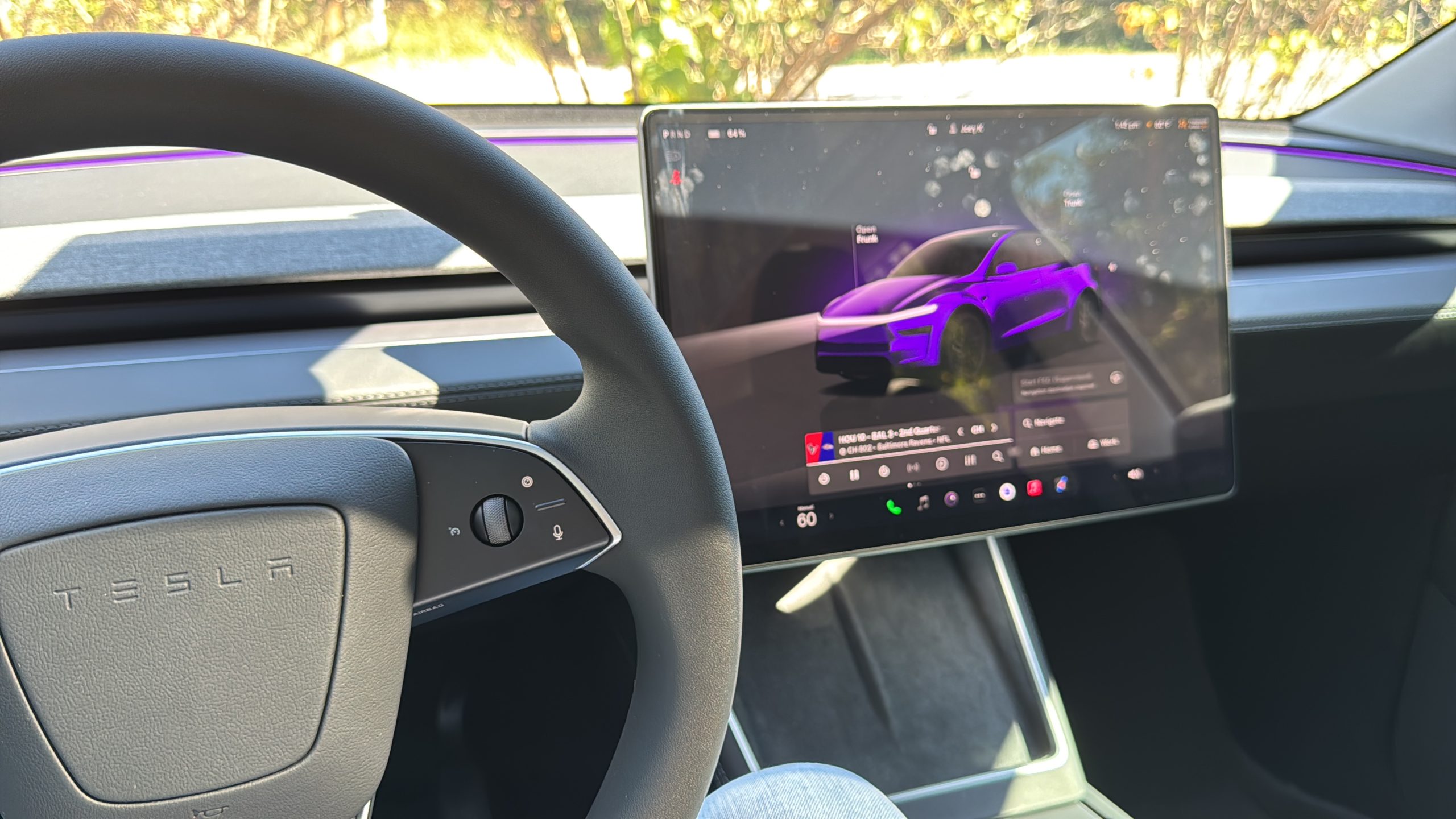
Tesla Full Self-Driving is set to get an awesome new feature in the near future, CEO Elon Musk confirmed on X.
Full Self-Driving is the company’s semi-autonomous driving program, which is among the best available to the general public. It still relies on the driver to ultimately remain in control and pay attention, but it truly does make traveling less stressful and easier.
However, Tesla still continuously refines the software through Over-the-Air updates, which are meant to resolve shortcomings in the performance of the FSD suite. Generally, Tesla does a great job of this, but some updates are definitely regressions, at least with some of the features.
Tesla Cybertruck owner credits FSD for saving life after freeway medical emergency
Tesla and Musk are always trying to improve the suite’s performance by fixing features that are presently available, but they also try to add new things that would be beneficial to owners. One of those things, which is coming soon, is giving the driver the ability to prompt FSD with voice demands.
For example, asking the car to park close to the front door of your destination, or further away in an empty portion of the parking lot, would be an extremely beneficial feature. Adjusting navigation is possible through Grok integration, but it is not always effective.
Musk confirmed that voice prompts for FSD would be possible:
Coming
— Elon Musk (@elonmusk) February 21, 2026
Tesla Full Self-Driving is a really great thing, but it definitely has its shortcomings. Navigation is among the biggest complaints that owners have, and it is easily my biggest frustration with using it. Some of the routes it chooses to take are truly mind-boggling.
Another thing it has had issues with is being situated in the correct lane at confusing intersections or even managing to properly navigate through local traffic signs. For example, in Pennsylvania, there are a lot of stop signs with “Except Right Turn” signs directly under.
This gives those turning right at a stop sign the opportunity to travel through it. FSD has had issues with this on several occasions.
Parking preferences would be highly beneficial and something that could be resolved with this voice prompt program. Grocery stores are full of carts not taken back by customers, and many people choose to park far away. Advising FSD of this preference would be a great advantage to owners.
Cybertruck
Elon Musk clarifies Tesla Cybertruck ’10 day’ comment, fans respond
Some are arguing that the decision to confirm a price hike in ten days is sort of counterproductive, especially considering it is based on demand. Giving consumers a timeline of just ten days to make a big purchase like a pickup truck for $60,000, and basically stating the price will go up, will only push people to make a reservation.
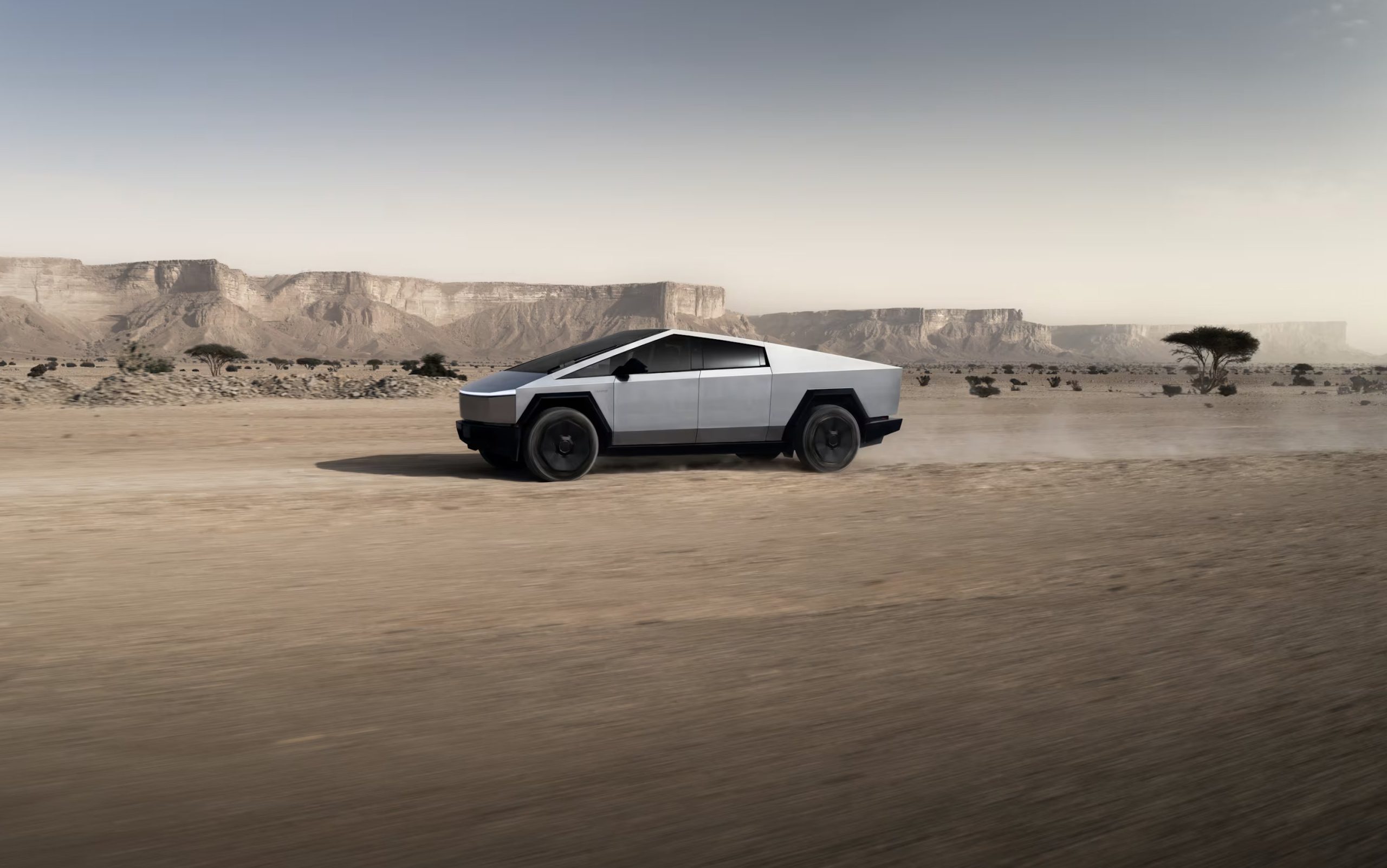
Elon Musk has clarified what he meant by his comment on X yesterday that seemed to indicate that Tesla would either do away with the new All-Wheel-Drive configuration of the Cybertruck or adjust the price.
The response was cryptic as nobody truly knew what Musk’s plans were for the newest Tesla Cybertruck trim level. We now have that answer, and fans of the company are responding in a polarizing fashion.
On Thursday night, Tesla launched the Cybertruck All-Wheel-Drive, priced competitively at $59,990. It was a vast improvement from the Rear-Wheel-Drive configuration Tesla launched last year at a similar price point, which was eventually cancelled just a few months later due to low demand.
Tesla launches new Cybertruck trim with more features than ever for a low price
However, Musk said early on Friday, “just for 10 days,” the truck would either be available or priced at $59,990. We can now confirm Tesla will adjust the price based on more recent comments from the CEO.
Musk said the price will fluctuate, but it “depends on how much demand we see at this price level.”
Depends on how much demand we see at this price level
— Elon Musk (@elonmusk) February 20, 2026
Some are defending the decision, stating that it is simply logical to see how the Cybertruck sells at this price and adjust accordingly.
Case 1: You don’t like it -> don’t buy it
Case 2 (me): You like it, it’s fits your situation and needs -> you buy it.
Case 3: Complain endlessly for no reason, you weren’t going to get one anyway, but you want people to know you’re mad, for some reason.
Silly netizens.— Ryan Scanlan 👥 (@Xenius) February 21, 2026
Others, not so much.
Alright I’m obviously not the one successful enough to be calling the shots at Tesla and worth almost a trillion dollars
But people were excited about the awesome Cybertruck news and then it got taken away, that’s why people are annoyed. The wording felt more like a threat.… pic.twitter.com/NWVNklcXoJ— Dirty Tesla (@DirtyTesLa) February 21, 2026
No but fr wtf you doing dude???????
— Greggertruck (@greggertruck) February 20, 2026
It’s how it was communicated.
If it had been stated clearly on the website for everyone to see, everyone would be fine.
— KiTT_2020 (@kitt_2020) February 20, 2026
Some are arguing that the decision to confirm a price hike in ten days is sort of counterproductive, especially considering it is based on demand. Giving consumers a timeline of just ten days to make a big purchase like a pickup truck for $60,000, and basically stating the price will go up, will only push people to make a reservation.
Demand will look strong because people want to lock in this price. The price will inevitably go up, and demand for the trim will likely fall a bit because of the increased cost.
Many are arguing Musk should have kept this detail internal, but transparency is a good policy to have. It is a polarizing move to confirm a price increase in just a week-and-a-half, but the community is obviously split on how to feel.
Cybertruck
Tesla Cybertruck’s newest trim will undergo massive change in ten days, Musk says
It appears as if the new All-Wheel-Drive trim of Cybertruck won’t be around for too long, however. Elon Musk revealed this morning that it will be around “only for the next 10 days.”
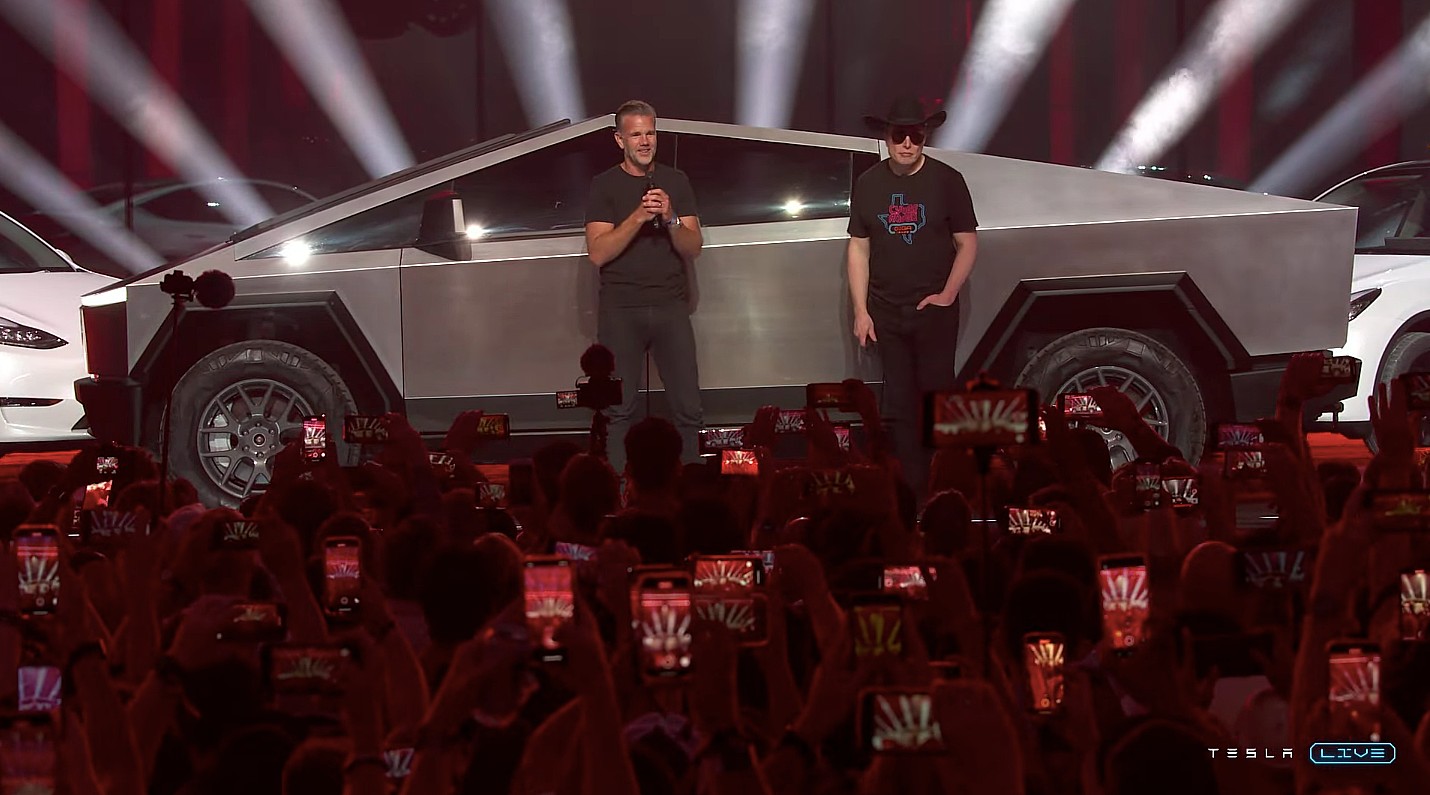
Tesla’s new Cybertruck trim has already gotten the axe from CEO Elon Musk, who said the All-Wheel-Drive configuration of the all-electric pickup will only be available “for the next ten days.”
Musk could mean the price, which is $59,990, or the availability of the trim altogether.
Last night, Tesla launched the All-Wheel-Drive configuration of the Cybertruck, a pickup that comes in at less than $60,000 and features a competitive range and features that are not far off from the offerings of the premium trim.
Tesla launches new Cybertruck trim with more features than ever for a low price
It was a nice surprise from Tesla, considering that last year, it offered a Rear-Wheel-Drive trim of the Cybertruck that only lasted a few months. It had extremely underwhelming demand because it was only $10,000 cheaper than the next trim level up, and it was missing a significant number of premium features.
Simply put, it was not worth the money. Tesla killed the RWD Cybertruck just a few months after offering it.
With the news that Tesla was offering this All-Wheel-Drive configuration of the Cybertruck, many fans and consumers were encouraged. The Cybertruck has been an underwhelming seller, and this seemed to be a lot of truck for the price when looking at its features:
- Dual Motor AWD w/ est. 325 mi of range
- Powered tonneau cover
- Bed outlets (2x 120V + 1x 240V) & Powershare capability
- Coil springs w/ adaptive damping
- Heated first-row seats w/ textile material that is easy to clean
- Steer-by-wire & Four Wheel Steering
- 6’ x 4’ composite bed
- Towing capacity of up to 7,500 lbs
- Powered frunk
It appears as if this trim of Cybertruck won’t be around for too long, however. Musk revealed this morning that it will be around “only for the next 10 days.”
Only for the next 10 days https://t.co/82JnvZQGh2
— Elon Musk (@elonmusk) February 20, 2026
Musk could mean the price of the truck and not necessarily the ability to order it. However, most are taking it as a cancellation.
If it is, in fact, a short-term availability decision, it is baffling, especially as Tesla fans and analysts claim that metrics like quarterly deliveries are no longer important. This seems like a way to boost sales short-term, and if so many people are encouraged about this offering, why would it be kept around for such a short period of time?
Some are even considering the potential that Tesla axes the Cybertruck program as a whole. Although Musk said during the recent Q4 Earnings Call that Cybertruck would still be produced, the end of the Model S and Model X programs indicates Tesla might be prepared to do away with any low-volume vehicles that do not contribute to the company’s future visions of autonomy.
The decision to axe the car just ten days after making it available seems like a true head-scratcher.
